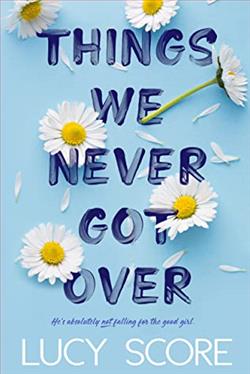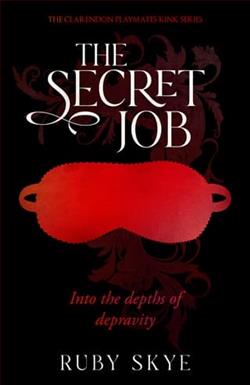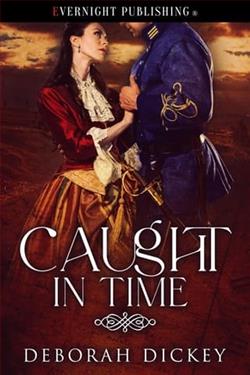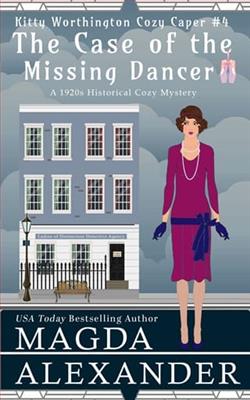Page 25 of The Secrets of Dragonfly Lodge
He went on to explain the structure of the degree course. Nancy listened with rapt attention, but was surprised to learn that they’d be studying Geology and Botany during their first year in addition to Zoology. She should have asked more about the course at interview, but she’d felt very shy with the professor, who was a distinguished entomologist, interested in insects of any and every sort. He’d talked to her with passion about his work with bumble bees in New Zealand and fire ants in America, but when he’d asked her why she herself was interested in Zoology, he had hardly listened to her rambling answer about ‘loving animals’. He’d simply murmured, ‘Splendid! Splendid!’ and said that he’d write to her school before sending her on her way.
James West raised his hand and asked the question for her. ‘What’s the reason we study Geology, sir?’ There was a touch of arrogance about the way he spoke, which clearly annoyed the professor.
‘I’m surprised that a chap of your education should need to ask that,’ he replied, staring down his nose at the young man, who had the grace to look abashed. ‘Life on Earthhas always been dependent on the nature of the rocks and soil beneath our feet. One cannot study our fauna without understanding that. And should anyone question the need for Botany,’ he said to the room, ‘well, plants and animals are so clearly interlinked, one cannot appreciate the one without the other. Are there any more concerns? No? Well, Dr Mills here will explain to you about our field trips, then he and Dr Lansdale will squire you around the department and other relevant areas of the campus, which should take us nicely to lunchtime.’
‘It’s not very big, our department, is it?’ Peggy remarked at lunch in the refectory.
The new zoologists had collected their meals on trays from a hatch and congregated at one of the long tables. The boys and the girls sat down on the benches in separate groups, each wary of the other. Edmund Buckland and Michael Carlton, the two older men, had not been unfriendly, but they had stuck together during the tour of what the students were learning to call the ‘Zoo’ building. There was an understandable division between them and the raw school-leavers, but now they chose to sit down in the space between the two groups, thus uniting them. Peggy was on one side of Edmund, James West on the other. Nancy was opposite Peggy and next to Michael.
‘Are you referring to the size of the department building or the numbers of students?’ James West asked, clumsily pouring himself water and splashing it on the table.
Peggy flinched at his clipped tone. ‘Both, really.’
‘They have to build up the department again.’ Edmund’s voice was gentler. ‘It only properly came into being in thirty-six when Professor Briggs arrived and then it practically closed during the war, so there’s a great deal of work to do. I took the impression from my interview that he’s working hard to increase Zoology’s importance within London University.’
‘He informed me that he’s got the college to invest in a new research institute near St Albans,’ Michael chipped in. ‘ICP’s involved, you know, the big chemicals firm.’
The others stared at the older men, impressed by the extent of their knowledge. None of them had thought to find this out. Nancy had vaguely heard of ICP and wondered aloud what it stood for. ‘International Chemical Products,’ Michael replied.
‘Were you in the forces, sir?’ a keen, wide-eyed boy named John Philips asked Edmund.
‘You shouldn’t call me sir. I’m only a few years older than you.’ Edmund smiled, the skin around his eyes crinkling. Nancy liked his grave face and quiet, cultured voice. ‘But, yes. Carlton was, too, weren’t you? I was drafted in straight after school in forty-two. Eighth Army and the desert for me, but Carlton was the real hero. Spitfires, didn’t you say, Carlton?’
‘The Battle of Britain?’ Philips breathed, his eyes round with hero-worship.
‘No, I was still at school in Shrewsbury in 1940.’ Michael Carlton grinned as he lit a cigarette, and Nancy noticed how his hands shook slightly. He inhaled deeply before adding, ‘Italy in forty-three. We provided air cover for the invasion.’
His audience were silent, over-awed by these war heroes in their presence. Finally, James West said, ‘How come you’re here now? I thought all the forces men were given priority last year.’
‘And the year before, yes,’ Edmund said. ‘But I couldn’t do it for private reasons. What about you, Carlton?’
‘Recovering from injury.’ His voice wavered.
‘What happened to you?’ West was relentless. One of the girls, Anne Durban, tutted.
‘It’s no secret. Had to bail out over Belgium in forty-five, which was bad luck. Landed in a tree – good luck. Impaled on a branch – bad luck. I’ll show you the scars when I know you better.’
His black humour finally broke the ice. Everyone laughed and started talking at once.
Later, as they stacked their trays on a trolley, Peggy said to Nancy, ‘Must be odd, don’t you think, them being here after all that. I expect we must seem rather dull.’
‘Perhaps dull is a relief after what they’ve been through.’
‘I suppose. You said you had an older brother, Nancy. Was he called up?’
‘Yes, in forty-three, but he spent the following two years not doing very much. His unit never left the country. Now he’s refused to study law. Says the moment has passed, he’s too old. My father is none too pleased.’ Roger had tried several different jobs, but had not been able to settle in any of them. He was currently working as a lowly clerk in their father’s department at the Home Office. Nobody was sure if he’d stick it out. Mr Foster grew red-faced with fury ifRoger wasn’t up and breakfasted in time to leave with him in the mornings.
‘You know, my dad’s a military doctor – he’s seen a lot of boys like that. Says the war has left them high and dry.’
Nancy and Peggy trailed back with the others across the quad to the Zoology building. Here, the afternoon programme commenced with a talk by the head technician in one of the labs. It was a large, curiously bare room on the first floor at the back, overlooking a main road. The technician, Miss Pick, a brisk older woman in a crisp white overall, listed instructions for the safe use of scalpels and chemicals, reminded them of the need to buy their own dissecting kit and gave the impression that any extra equipment was locked up and would be issued only when absolutely necessary.
Nancy preferred the look of Miss Pick’s assistant, a put-upon motherly lady whom Miss Pick addressed as Mrs Hall, who obediently fetched items from a back office for demonstration and took them away afterwards. The students sat on stools at the high worktops, the girls carefully writing down everything Miss Pick said, the boys making the odd note or doodling in their exercise books, though they must have been listening because they were usually the first to put their hands up when it was time for questions.
The rest of the afternoon involved tours of the Geology and Botany departments, which were next to the Chemistry building, then afternoon tea with the Zoology staff, a rather stiff occasion that took place in a small teaching room that was overlooked by a case of stuffed British mammals, whoseglassy glares made Nancy feel uncomfortable. After this, there were dissection sets and chunky second-hand textbooks to buy from a stall set up in the library and then the students were free to go. Lectures would begin at ten o’clock sharp the next morning.
Lugging her briefcase, now laden with her purchases, Nancy bid goodbye to Peggy outside the college and watched with envy from the bus stop as her new friend went off in the opposite direction, laughing and chatting with the Annes, who also lived in her hostel.
The front door was ajar when Nancy reached home and she let herself in and started up the stairs to her bedroom as quietly as she could, hoping to avoid a barrage of questions, but her mother had keen ears. ‘Is that you, Nancy?’ Mrs Foster put her head round the kitchen door. ‘I need you to lay the table, please.’















